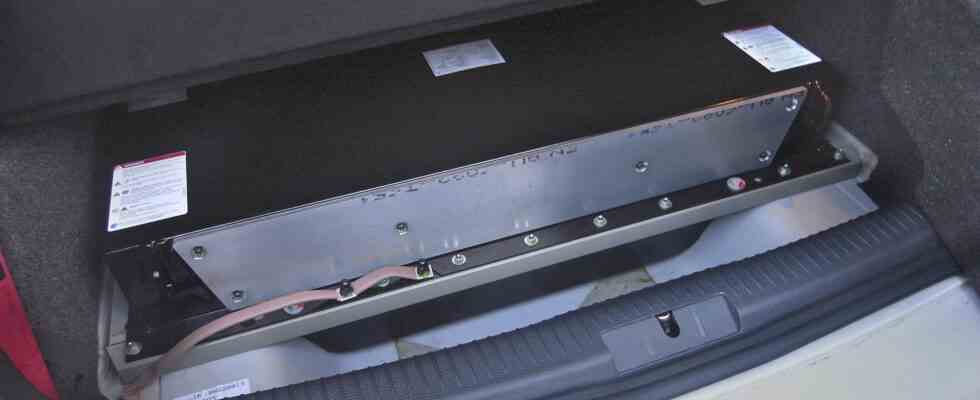Status: 04/25/2022 7:04 p.m
With a “battery passport”, the EU wants to help make batteries for electric cars more sustainable. A German pilot project is to propose standards. Audi and BMW are also taking part.
CVs are known from applications. They could also become mandatory in the future for batteries that are installed in electric cars, for example. The EU is considering a battery passport. Michael Kellner, Green State Secretary in the Federal Ministry of Economics, is also a fan of the idea. “We want to create transparency with this pass,” says Kellner.
Transparency over the entire life cycle of batteries, that means, for example: How were the raw materials for the battery mined? Cobalt, nickel, lithium – sometimes the conditions are catastrophic for people and the environment. That should change. The goal is “the best environmental, climate and social conditions in the production of batteries,” says Kellner. How much CO2 was blown into the air to make the battery? How much has it been used in your life? All this is to be recorded digitally in a database. The EU is currently negotiating to make the battery passport mandatory in a few years. According to Kellner, 2026 is being discussed as the starting year.
Lots of open questions
But Kellner and the Ministry don’t want to wait. An association of companies and research institutes in Germany should already think about what such a battery pass could look like. Audi is involved in the project, BMW, but also the chemical company BASF and the Fraunhofer Institute. The federal government is funding the whole thing with around eight million euros. It should be particularly interesting for companies to be involved at an early stage when it comes to developing standards that they will later have to comply with. The Green State Secretary sees no problem with this: “Good rules are created through mutual exchange,” says Kellner.
There are many unanswered questions about the design of a battery passport. The project aims to find answers. “How do we actually ensure that the data is accurate? There have to be processes for this by independent third parties,” says Thorsten Freund from BASF. The data transfer systems would also have to be forgery-proof. Silja Pieh from Audi only sees the European path as a “first step”. She hopes to set an example for the global market, “so that we don’t have different requirements in different regions.”
“Recycling Instructions”
The pass should also make it more likely that batteries will be recycled. Because the basis for meaningful recycling is to first record what a battery has behind it, explains Susanne Kastner from the German Academy of Science and Engineering. It must be recorded, for example, “which extreme temperatures the battery has gone through” or whether there has been a complete discharge. Based on this dynamic data, a decision can be made as to what the further life cycle of a battery can look like: whether it could be used in another electric car, for example, or whether it would be better to use it in industry as a large storage battery.
Michael Kellner from the Federal Ministry of Economics calls the battery pass “something like an instruction manual” for later recycling. “We know that we shouldn’t waste raw materials. They should be used again and again because metals have eternal life.” Kellner hopes that better recycling will also reduce dependency on imported raw materials. In addition, sustainability could be a competitive advantage in the future. The Economics Ministry expects that up to 100,000 jobs will be created in Germany by 2030 as a result of domestic battery production. “European battery production can only be successful if it focuses on sustainability in as many areas as possible,” says Kellner.
Federal government promotes the development of battery passports for e-cars
Marcel Heberlein, ARD Berlin, April 25, 2022 6:23 p.m

